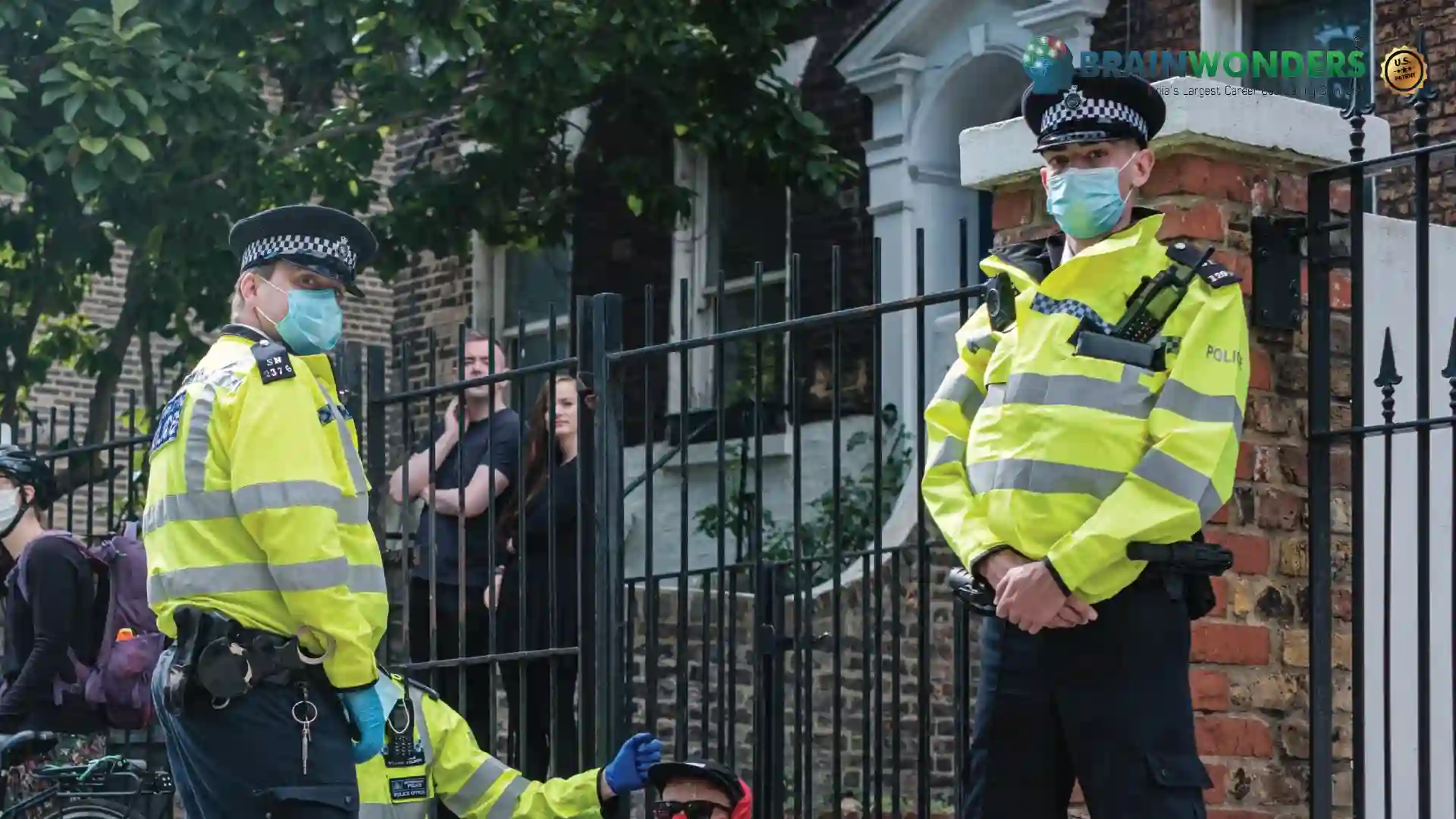How to become a Probation Officer
Overview, Courses, Exam, Colleges, Pathways, Salary

Overview
Who is Probation Officer ?
A court official who regularly meets first-time offenders and is sentenced to a supervised probation time is called a probation officer. They work with first-time offenders and prevent them from committing new crimes. They work closely with law enforcement agencies, social services, educational institutions, placement agencies, and the housing sector to help assist the offenders with the rehabilitation plan that best suits them. The probation officers work on parolees for the state and local governments. One of the duties that a probation officer needs to fulfill is to track a parolee who might have fled and get them back to the system. The probation period could be anywhere from 6 months to a year, and at this time, the individual is forbidden from certain activities such as drug use, substance abuse, etc. The career as a Probation Officer can be somewhat stressful but can also be rewarding at the same time. Probation officers have the power to make a difference in someone else's life and prevent them from committing any further crime.
Typical day at work
What does Probation Officer do?
The roles and responsibilities of the probation officer include:
- Meet the clients on a monthly basis and sometimes on a weekly basis as well.
- Determine the level of supervision an individual requires.
- Assess how involved an individual is in the community.
- Run programmes to help clients become rehabilitated in the community again.
- Assess how prone is the individual to commit further crimes.
- Fill out report forms while having a client meeting that needs to be submitted in court to check the progress levels.
- Provide advice and guidance to the offenders.
- Supervising the junior staff as well as educate them about the entire process of work.
- Help and support the victims of a crime in a community.
Abilities and Aptitude needed
What are the skills, abilities & aptitude needed to become Probation Officer?
A few necessary talents are needed for the post of probation officer; these abilities aid in the proper functioning of the work role. The individual must be a critical thinker and use logic and reasoning to identify the strengths and weaknesses of the individual to get to the best possible solution for them. They must be active listeners to pay full attention to what the client is saying, understand the points made by them, and ask relevant questions according to the conversations. They must also be aware of other people's reactions and understand why they react the way they did. Their communication skills must also be good for dialogues to be easier to understand. They also must have a substantial problem-sensitive ability. This helps them identify a situation where something is wrong or is about to go wrong; this does not involve solving the problem but just recognizing that there is a problem. They also need skills like strong communication skills, patience, stress management skills, time management abilities, interpersonal skills, and clear and concise writing skills.
Salary
Salary for Probation Officer?
- Minimum Monthly Salary: For entry-level Probation Officers or those with limited experience, the monthly salary might range from INR 25,000 to INR 40,000 or more.
- Maximum Monthly Salary: Highly experienced and skilled Probation Officers, especially those with advanced certifications, additional qualifications, or working in senior positions, may earn a monthly salary ranging from INR 60,000 to INR 1,00,000 or more.
- Annual Salary: The annual salary for entry-level Probation Officers could be approximately INR 3 lakhs to INR 4.8 lakhs per year. Experienced and well-qualified Probation Officers may earn a maximum yearly salary ranging from INR 7.2 lakhs to INR 12 lakhs or more.
- Highest-Paying Jobs and Scope: The highest-paying jobs for Probation Officers are often found in government agencies, correctional facilities, and social service organizations. Probation Officers with a proven track record of effectively managing cases, strong communication and interpersonal skills, and the ability to work with diverse populations may command higher salaries and have opportunities for advancement into supervisory or management roles within the probation system.As criminal justice systems continue to evolve and emphasize rehabilitation and community-based alternatives, the demand for qualified Probation Officers remains significant. These professionals play a crucial role in assisting individuals on probation to reintegrate into society, providing guidance, monitoring compliance with court orders, and helping to prevent recidivism.
Pathways
How to become an Probation Officer?
Entrance Exam
Entrance Exam for Probation Officer ?
There is no such entance exam conducted to become a probation officer. Some private universities or institutes conduct their own entrance exam and inteerview to pursue bachelors or masters degree in relevant field.
Courses
Which course I can pursue?
Best Colleges
Which are the best colleges to attend to become an Probation Officer?
Industries
Which Industries are open for Probation Officer?
Probation Officers work primarily within the criminal justice system and are responsible for monitoring and supporting individuals who are on probation, parole, or other community-based supervision. As such, their main employment opportunities are typically found in the following industries:
- Government Agencies: Probation Officers are commonly employed by various government agencies at the local, state, and federal levels. They work within probation or parole departments and are part of the criminal justice system.
- Correctional Facilities: Probation Officers may find employment in correctional facilities, including jails, prisons, and detention centers. In these settings, they can be involved in pre-release planning and the supervision of offenders after their release.
- Juvenile Justice System: Some Probation Officers specialize in working with juveniles who are on probation or involved in the juvenile justice system. They focus on rehabilitation and guiding young individuals toward positive behavior.
- Community-Based Organizations: Non-profit organizations and social service agencies often employ Probation Officers to provide support and rehabilitation services to individuals under community supervision.
- Courts and Legal Systems: Probation Officers may work directly with the courts, providing pre-sentencing reports, probation recommendations, and post-sentencing supervision for offenders.
- Rehabilitation and Reintegration Programs: Some Probation Officers work in programs specifically designed to support offenders in their transition back into society and reduce the likelihood of reoffending.
- Mental Health and Behavioral Health Agencies: Given the link between mental health issues and criminal behavior, Probation Officers may collaborate with mental health professionals and work in agencies that focus on mental health services.
- Substance Abuse Treatment Centers: Probation Officers often encounter individuals struggling with substance abuse issues. In some cases, they may work in partnership with substance abuse treatment centers.
- Private Probation Companies: In some jurisdictions, private companies are contracted to provide probation services. Probation Officers may find opportunities in such private probation agencies.
- Law Enforcement Agencies: Some law enforcement agencies employ Probation Officers to assist with monitoring individuals under probation who may have a history of criminal activities.
internship
Are there internships available for Probation Officer?
Internships for aspiring Probation Officers can be valuable experiences to gain practical knowledge and skills in the field. However, it's important to note that internships for Probation Officers may not be as widely available as internships in other fields. The nature of the work, which involves handling legal and sensitive matters, may limit the number of internship opportunities.
That being said, there are some avenues where individuals interested in pursuing a career as a Probation Officer might find internships:
- Government Agencies: Local, state, or federal probation departments may offer internship programs to give students or aspiring Probation Officers hands-on experience in the criminal justice system. These internships may be competitive and may require background checks or security clearances.
- Courts: Some court systems may offer internships that involve working closely with probation departments and probation officers. Interns may assist with case management, pre-sentencing reports, and court hearings related to probation matters.
- Non-Profit Organizations: Social service agencies or non-profit organizations that work with ex-offenders or individuals on probation may provide internship opportunities. Interns in such organizations may assist with rehabilitation and reintegration programs.
- Mental Health and Behavioral Health Facilities: Internships in mental health centers or behavioral health facilities may offer exposure to the intersection of mental health issues and the criminal justice system, which is relevant to the work of Probation Officers.
- Law Enforcement Agencies: Some law enforcement agencies may offer internships that involve working with probation departments or individuals under community supervision.
- Academic Institutions: Universities or colleges with criminal justice or related programs may have partnerships with probation departments, offering internships to their students.
Career outlook
What does the future look like for Probation Officer?
A probation officer's employment chances are more significant in metropolitan regions than in the rural sector. Probation officers at the central level often earn at the top of the wage scale. Aside from the notoriety they get from their job, they also receive health and life insurance, paid time off, and a retirement plan. Being promoted to a higher-ranked level, such as chief probation officer, the supervisory position earns a higher salary as probation officers are government employees. The overall job outlook of a probation officer has been relatively unchanged since 2004. The profession of a probation officer is projected to rise by 4 percent from 2019 to 2029. This is nearly as fast as the national average for all jobs.





.webp)

